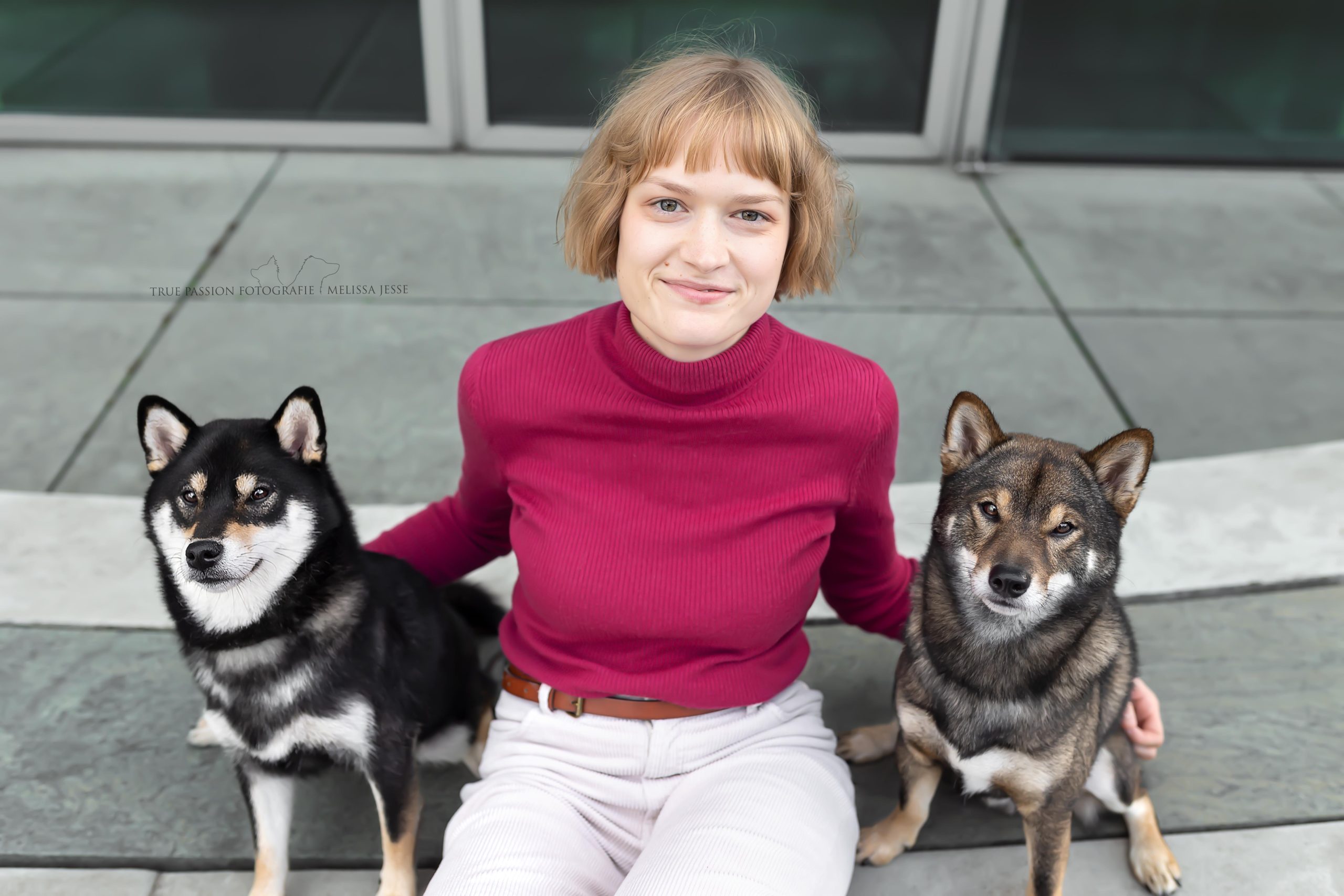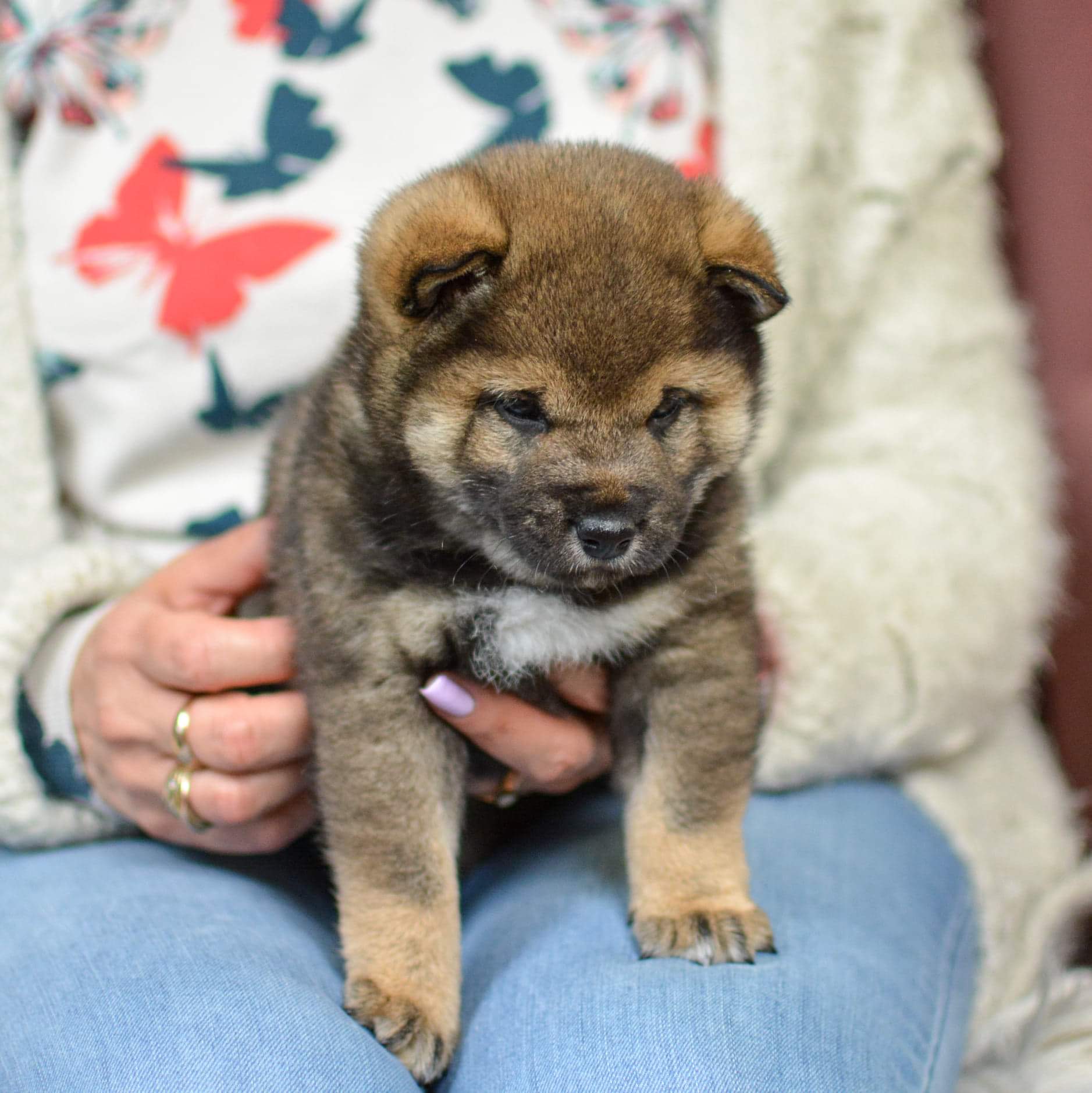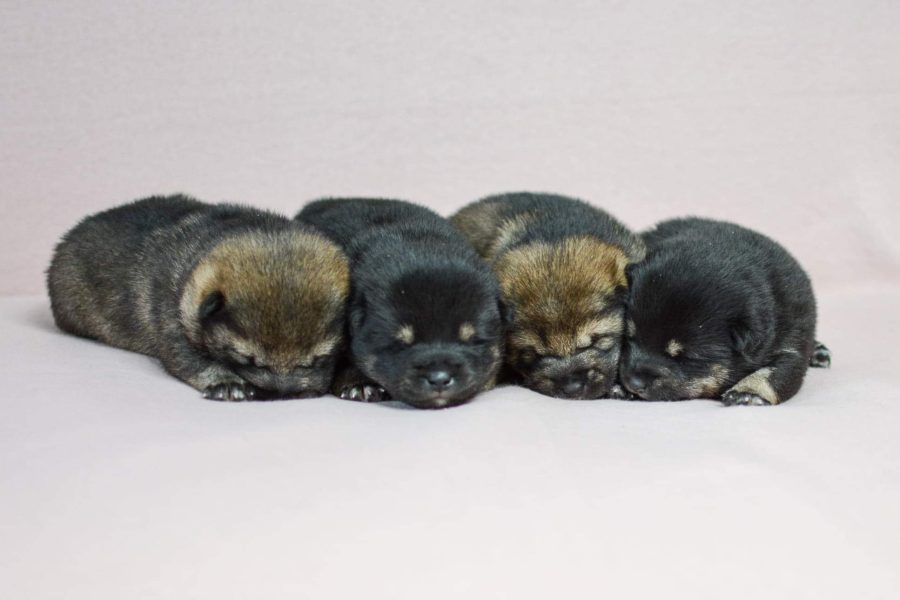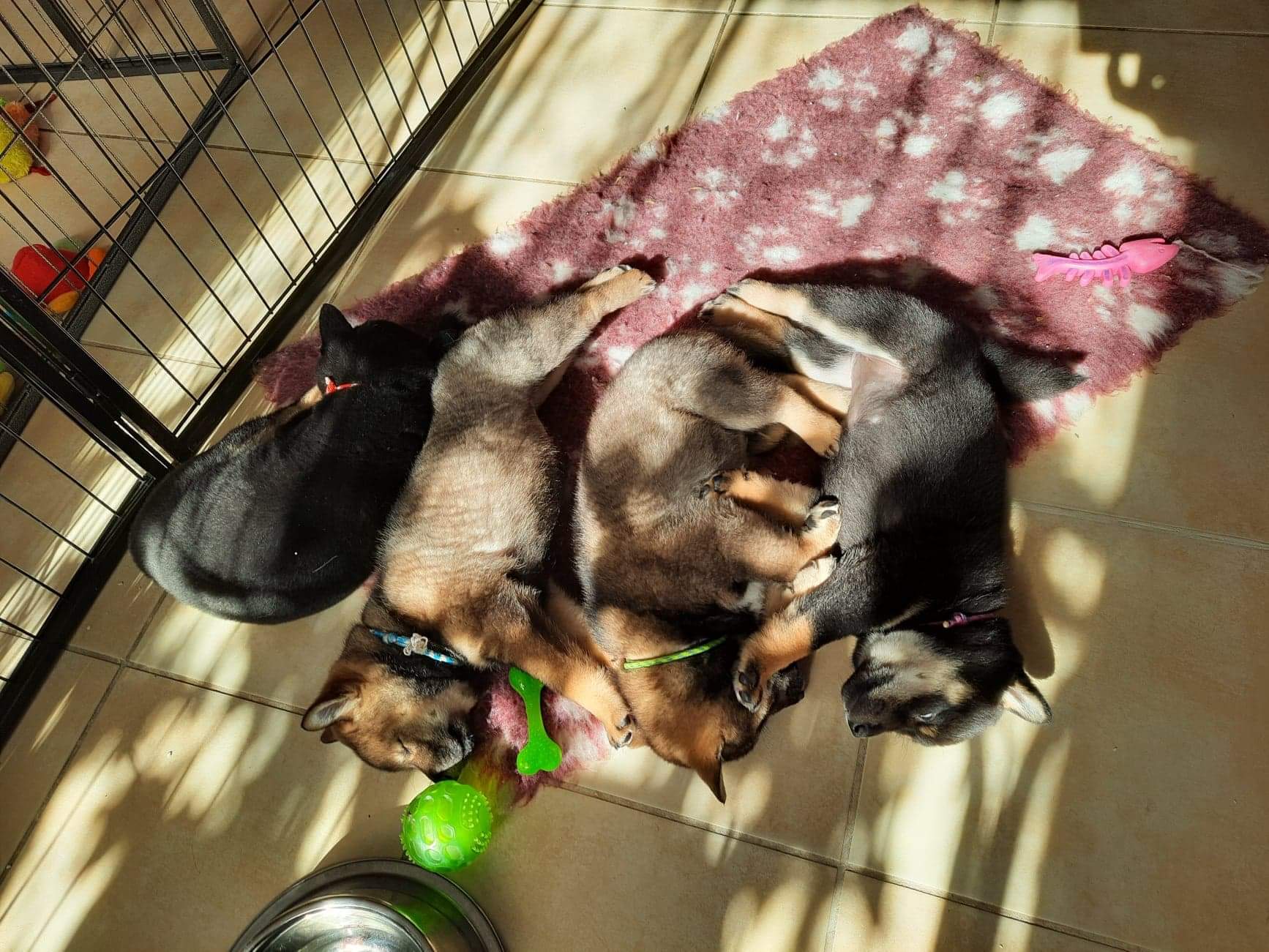Since October 2022 we are registered breeders in the Shiba Club Deutschland e.V. and are therefore affiliated to the VDH and the FCI. We see ourselves as breeders that focus on maintaining the breed standard, raising socially compatible and of course healthy puppies with a strong character. We only want the very best homes for our puppies.
Our dogs had to pass several health examinations in order to receive their breeding permission. These include an examination for hip dysplasia (HD) and eye diseases. On a voluntary basis we also test for patellar luxation (PL), elbow dysplasia (ED) and add gonioscopy to the eye disease tests. As DNA results and genetic diversity are also very important to us, we have also had our dogs profiled for this purpose (at Betterbred/UC Davis and/or MyDogDNA).

We are often asked about the rearing of our puppies, probably not least because we live in a very big city 🙂 We take advantage of this fact, because important key points of our socialization take place right on our doorstep and we don’t have to travel far to show the puppies a lot. The puppies initially grow up very sheltered in our household and get to know everyday noises such as the clattering of cutlery, vacuum cleaner, dishwasher, washing machine, television, radio and the dropping of objects. Another advantage of Berlin is that there are always fireworks somewhere, so of course we open the window wide so that the puppies get to know them early on in a protected environment. From week 4 onwards, we go on tour in our dog buggy, drive the car almost every day and visit our garden, where the puppies can let off steam and learn to be house-trained. We were able to house-train our A litter in this way – but this is not something we generally promise and is more down to the future owners, who have to learn to read their dog and take it outside after every meal, play and sleep. In our garden, the puppies also get to know things like the sounds of a hedge trimmer, a shredder or even a sanding belt and come into contact with many different surfaces. From the 4th week of life, we invite strangers, first the future owners, then other strangers, neighbors and children. The puppies learn to wear collars and harnesses and to walk on a lead, are carried up and down stairs and get potty-trained – just as they will be in their future homes. Smaller excursions to busy places take place, where we meet kindergarten children, schoolchildren, mothers and fathers with baby carriages, electric scooters, bicycles, sanitation workers and cars, and the puppies also get to know a tramway – from the outside, because we don’t want to expose our unvaccinated puppies to any danger. From week 2 the puppies are being dewormed every 2 weeks and at 8 weeks they get vaccinated, chipped and receive their EU vaccination certificate. Our puppies move into their new homes at the age of 8 weeks – Shiba puppies are independent from a very early age and need competent individual care from this point onwards. At this point, the mother has already clearly detached herself from the puppies and needs time for herself and regeneration – therefore we (and also the majority of our breeder colleagues) consider the time of moving out at 8 weeks to be ideal.
We are always available for our puppy buyers and are happy to give advice and tips. We are interested in how our puppies are doing, are happy to receive photos and videos and are also looking forward to arranging meetings with the new owners.
As a prospective puppy owner, you naturally ask yourself how to get a puppy. We do not work with a waiting list, but proceed according to sympathy, knowledge about the breed, life circumstances and expectations of a puppy. We are happy to answer your questions and advise you on whether a Shiba is the right companion for you. Please contact us first in writing via e-mail, WhatsApp or Telegram and tell us a little about yourself or use the form on our page “contact“. Afterwards, we arrange a telephone conversation and also meet in person so that you get to know us and our pack in person and vice versa.
As we only have one female at the moment, it is possible that there is no puppy of the upcoming litter available for you – but there is always the possibility to wait for one of our next litters. We are also happy to refer you to our breeder colleagues – just get in touch with us!
We attach great importance to staying in touch while you are waiting for your puppy so that everyone is always up to date. To this end, we ask you to send us a short written update (or a long update – whatever you prefer!), preferably via WhatsApp, every month or every two months. This way we can keep you on our radar and get to know each other even better.
In general, we only work “from litter to litter”, meaning we only accept interested parties for the upcoming litter and ask you to contact us again later if you are interested in one of the subsequent litters. If, however, you are only interested in a puppy from our kennel, we are happy to already have a phone call and note down your name for the litter of the following year. A meeting would then take place at a later date. We are also happy to invite interested parties for the next litter to our current puppies so that they can experience our breeding from up close, get to know us personally and the puppies also benefit directly by getting to know even more strangers 🙂
You can check our ways of puppy rearing and socializing in the story highlights of our Instagram page. Make sure to follow us and leave some likes 🙂
When we were still puppy buyers ourselves, we also asked ourselves that. In the meantime, thanks to our two breeding dogs, we were allowed to look “behind the scenes” ourselves and know exactly what numbers you are confronted with when you enter the serious dog breeding. These numbers are of course partly individual (e.g. concerning the import of dogs), but here is a rough overview:
These figures do not include the annual feed costs, veterinary costs, advanced education costs (the cynologic online basic class of the VDH is approx. 100 EUR, other courses are between 25 and 100 EU per course), costs for a website and photoshootings, dog show costs (an entry per day is usually between 40-60 EUR, plus travel and accommodation costs), costs for progesterone tests for the female to be covered (about 80-150 EUR per test, often between 2 and 4 tests are necessary), possible stud fees and travel and accommodation costs when using an external male (these costs are often directly
four-digit), costs for ultrasound and x-ray of the unborn puppies and possible emergencies such as a C-section (which can easily cost about 3000 EUR on a Sunday night) as well as costs for vaccinations, microchipping and deworming of the puppies. Also not included is the case that the breeder takes unpaid leave for raising the puppies, whereby the breeder misses a part of the salary. Many breeders use all their other vacation time to devote to puppy raising. If a breeder was to charge an hourly fee for raising puppies, a puppy would be worth a mint.
We gladly paid the puppy price of our two breeding dogs coming from serious breedings since we know exactly how many costs, effort and work go into such a puppy to make it a well socialized companion suitable for everyday life. And finally, we also know the downside of an animal coming from a backyard breeder, where you might save on the purchase price, but often have to spend more money on vet and dog trainer vists and in the end you don’t have a dog that is completely healthy and/or suitable for everyday life.
Our price for a puppy will vary from litter to litter, which is simply due to the fact that we will not always use our own stud dog, but drive longer distances to foreign studs with exceptional pedigrees (for who we have to pay a stud fee, of course). We do so because we take breeding very seriously (we don’t simply want to “produce” puppies). Generally one can say that a shiba puppy from a German breeder costs between 2500 and 4000 EUR in 2024 – of course there are exceptions (most likely for even higher prices) – but this is just to give you an idea about the cost of a puppy.


